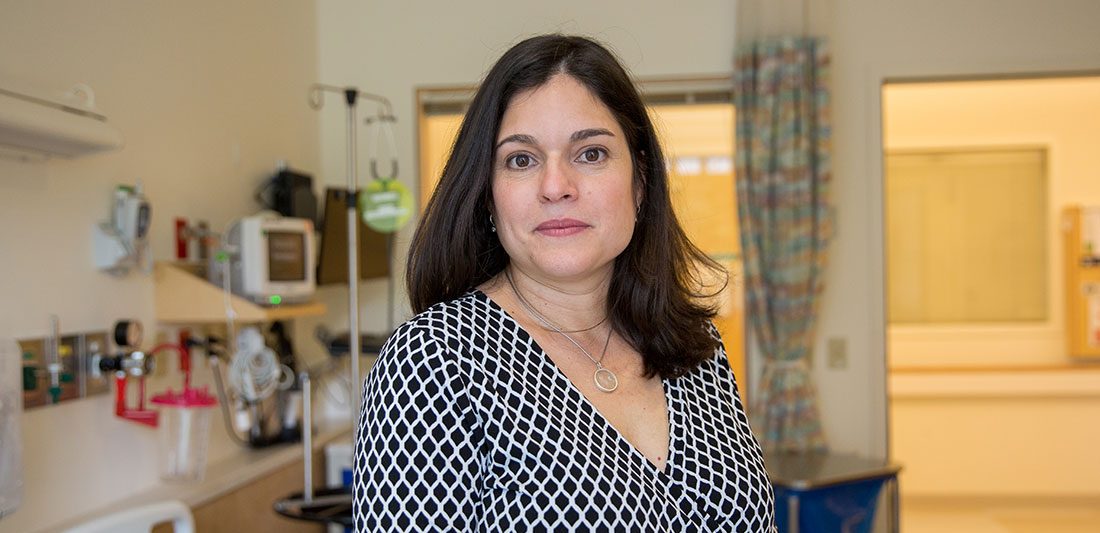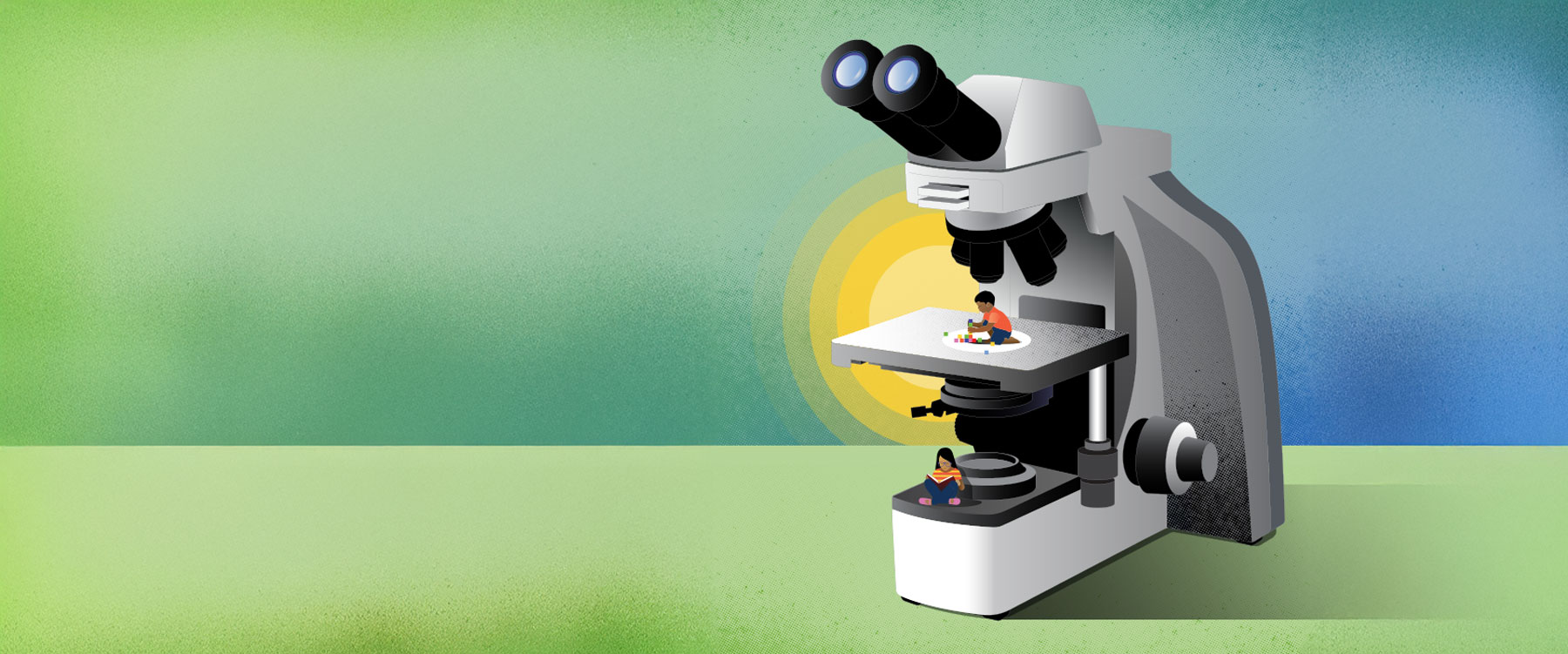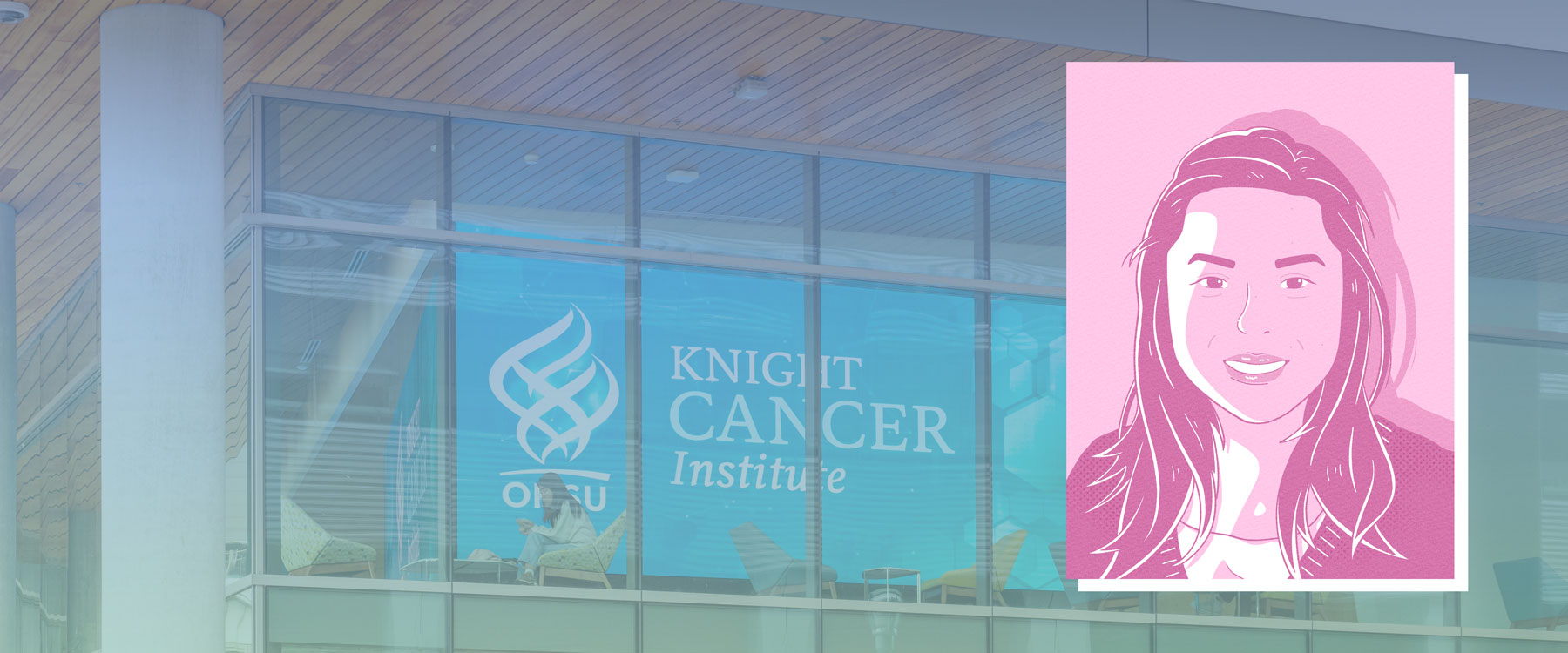The list of childhood cancers that are considered lethal is shrinking, and there’s a physician-scientist at OHSU Doernbecher Children’s Hospital who’s rallied a team of doctors, researchers, donors, patients and their families — plus the human body’s powerful immune system — to keep whittling that list down.
Eneida Nemecek, MD, MS, MBA, is a pediatric oncologist, researcher and professor who specializes in bone marrow transplantation and cellular therapies for blood cancers. She’s director of the Pediatric Bone Marrow Transplantation Program at Doernbecher, and co-director of the Northwest Marrow Transplant Program at the Center for Hematological Malignancies of the OHSU Knight Cancer Institute. Nemecek is also the Nancy Jaggar Blount Professor in Pediatric Oncology.
As a young child in Puerto Rico, leukemia had cast its shadow on her family, leaving Nemecek with questions that, like her science classes in high school, led to more questions and, ultimately, the realization that she should pursue a career in medicine. As she explored different specialties, she found she was particularly impressed with the community of doctors, families and children dealing with childhood cancers.
“I remember sitting with a mom early in my career, knowing that her baby’s possibility of survival was around 20 percent,” Nemecek says. “When a child with leukemia comes for a bone marrow transplant, they’ve already failed a variety of treatments, so there can be a perception and expectation that whatever we do isn’t going to work. There are cancers that, back when I was training, someone would get diagnosed with and die within six months, and there was nothing we could do.”
But that baby, she says, was different — and this fall he’s going to be a high school freshman.
Why that baby was different is the kind of question that drives Nemecek’s clinical care-based research every day, and the greatest opportunity to find answers is what first attracted her to OHSU Doernbecher, where she saw a positive, supportive culture that could seed and grow meaningful programs.
“Here,” she says, “especially in cancer research, the ability to exchange ideas with colleagues, being able to cross over to the adult clinics and labs and ask questions, it means we can have an entire institution working on a question.” The 300 or so patients who receive bone marrow transplants at OHSU and Doernbecher each year are a key part of that team, and the key beneficiaries.
“The ability to exchange ideas with colleagues…means we can have an entire institution working on a question.”
“It’s a great advantage, being in a setting like this, where all experts share their ideas and resources. Everyone here loves discovery and translating knowledge from the lab to the clinic — that happens here at every level,” Nemecek says.
And then there are the kids. “You reenergize when you take care of children, they have that sparkle. Even when they’re not doing well, they make you feel better. It’s just such a good thing to be around,” she says.
“Sometimes we can’t cure a patient, but when we’re able to get someone to have as good a quality of life and as much normalcy as possible, that’s also really important.”
Covering all the bases
Nemecek was fortunate to have high school teachers who sparked and encouraged her scientific curiosity. She also had a childhood doctor — her best friend’s father — who gave the two girls summer jobs in his clinic. Medicine, she decided, would be her path, so she went on to earn her bachelor’s degree at the University of Puerto Rico-Mayaguez, and her MD at the university’s school of medicine.
But after shadowing doctors and getting involved in patient care, she began to notice the nature of the people she worked with, and how rewarding pediatrics seemed to be to them. “I knew from the beginning I wanted to be both clinician and researcher. The questions are what really attracted me into medicine, and research allows me to pursue those questions.” She performed her residency in pediatrics at Case Western Reserve University in Ohio, after which she completed a fellowship in the Fred Hutchinson Cancer Research Center at University of Washington.
Now all her energy is focused on uncovering the full potential of bone marrow transplantation and cellular treatments for pediatric cancers and other diseases, such as deadly forms of leukemia. On any given hour you might find her doing patient rounds, overseeing her clinical research projects, training tomorrow’s doctors as a professor of medicine and pediatrics, or driving her children to school and soccer.
A boost from philanthropy
Nemecek is also the inaugural holder of the Nancy Jaggar Blount Professorship in Pediatric Oncology, an endowed faculty position established by one of the hospital’s earliest and most influential philanthropic leaders, William Blount, in memory of his late wife, Nancy.
An endowed position such as the Blount Professorship is a coveted faculty distinction, and it comes with annual funding to support the recipient’s field of study. “These endowment funds allow me to continue to advance our bone marrow transplant program here at Doernbecher,” says Nemecek, “and that is a great responsibility.”
She adds, “It’s an important title to have, and I was very surprised and very honored to be chosen. The university is careful about appointing these positions to people who are here to stay – people who will advance the mission and grow the institution.”
She’s all in.
Patients are already being affected, because the program is making notable progress. In fact, Doernbecher is the first hospital in the Pacific Northwest to offer a new treatment for advanced leukemia in children and young adults.
Nemecek was one of the principal investigators for the nationwide clinical trial that led to FDA approval of the use of a new gene therapy, Kymriah, also known as CTL109 or tisagenlecleucel, for acute lymphoblastic leukemia. ALL is one of the most common and lethal forms of cancer in children and young adults. Doernbecher is one of only a handful of certified treatment centers in the nation to offer this game-changing therapy.
Nemecek credits a wide circle of supporters for making such breakthroughs possible. “Some of our biggest helpers here are the families of kids we have served in our program. Families that continue to support us and provide amazing input. If I need advice about a change to our program, those are the people I ask.”
“Some of our biggest helpers here are the families of kids we have served in our program. If I need advice about a change to our program, those are the people I ask.”
And there are the kids — those who’ve lost the fight yet raised new questions, and the survivors who have provided some answers and lots of hope. “There is a boy I took care of when he was 15 who, according to all statistics, was not going to survive his transplant,” says Nemecek. “I just went to his wedding and graduation from medical school, and now he is a pediatric resident going around the country speaking at national conferences about cancer survivorship.”
Nemecek smiles. “The list of untreatable cancers is getting smaller and smaller and smaller.”




